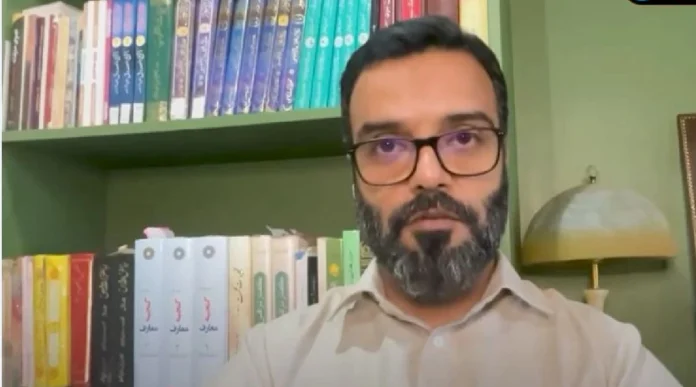By India Legal Correspondent
Aga Syed Ruhullah Mehdi, member of Parliament from Srinagar and a prominent face of the National Conference, is no stranger to the political churn in Jammu and Kashmir. Once a close ally of Chief Minister Omar Abdullah, Ruhullah now finds himself distanced from his party’s core leadership—a shift he attributes to a “communication breakdown” following the controversial reservation protests in late 2023.
“Until the assembly elections, my opinion mattered, but after the reservation protests, the party stopped engaging with me,” Ruhullah says in an exclusive interview, referring to the government’s move to cut down the merit quota by 30 percent. He had stood with protesting students—something, he believes, marked the beginning of his marginalization within the party.
But recent events have overshadowed internal party politics. On April 22, militants shot dead 26 civilians in Baisaran Valley, near Pahalgam, after allegedly identifying them by religion.
“Unacceptable,” Ruhullah calls it, slamming attempts to dilute the communal nature of the killings. “We take the word of families of victims who said that people were identified and targeted by religion… Such an act has no place in human society.”
He also reflects on terror, retaliation, alienation, and the dangerous shrinking space for moderation in the Valley in the interview.
HIGHLIGHTS FROM THE INTERVIEW
On the killings at Pahalgam
- Ruhullah confirms the killings were religiously targeted, based on victim family accounts.
- Rejects political spin; focuses on public outrage in Kashmir against the act.
- Praises the people of Kashmir for rising against terrorism.
On Modi’s “ghar pe ghus ke” doctrine
- Refrains from comment on Operation Sindoor.
- Expresses support for government-led justice—“in whatever form it comes.”
On war and peace
- Describes daily military presence as the norm in Kashmir.
- Argues that people have stopped fearing war—it’s already their lived experience.
- Calls for a “final” solution to the decades-long violence.
On collective punishment
- Alleges that over 3,000 youths were picked up in a security sweep.
- Condemns the demolition of homes of relatives of suspects.
- Warns this dehumanization feeds alienation and furthers radicalization.
On politics and party
- Notes increasing distance from the National Conference after post-reservation protests.
- Criticizes political silence over the killings and marginalization of dissenting voices.
On nationhood and identity
- Questions blanket stereotyping of Kashmiris as terrorists.
- Points to similar extremist violence in other Indian states—asks why only Kashmir is villainized.
On the path ahead
- Emphasizes trust-building over coercion.
- Rejects current scope for India-Pakistan dialogue.
- Stresses that “permanent peace” is possible—but only through justice and accountability.


